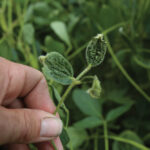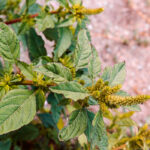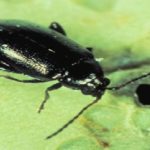Tag Archives spraying

New awareness campaign asks Ontario growers to ‘Be Drift Aware’

How important is water quality for spray applications?
It’s garnering more attention in a less forgiving world

Drift: The dreadful ‘D’ word in crop spraying
Herbicide drift can cause crop damage and have other repercussions

Staying on-target: How seed tech and weed type factor into spraying
Herbicide resistance and seed technologies making spray decisions complex

U.S. EPA reviewing dicamba over crop damage claims

Canadian weed sensing project could mean targeted spraying
Pesticides sprayed with more precision could reduce farmer costs and build consumer confidence in products

New tool allows scripting of crop protection products
The Climate FieldView tool creates special management zones in fields

Brandt closes GeoShack deal, locks up Topcon sales in Canada
Tractor company revives Ontario deal

Flea beetle damage ‘moderate’ across Prairies so far
Levels in Manitoba hit thresholds for spraying, reseeding canola

Drones to be tested against Africa’s locust swarms
U.N.'s FAO testing drones to detect, spray pests


